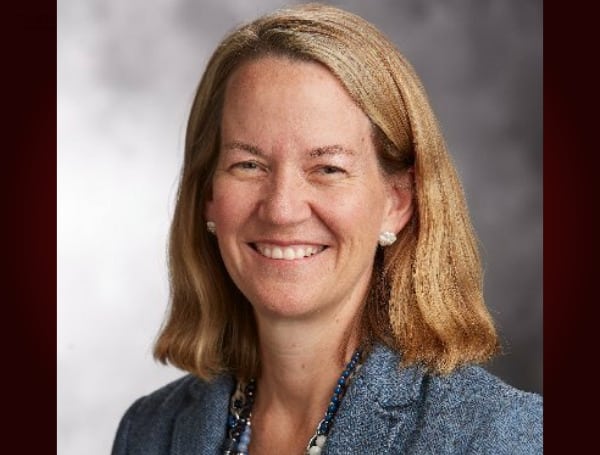Arizona Attorney General Kris Mayes In a significant legal development, the Arizona Supreme Court has delayed the enforcement of an 1864 law that

In a significant legal development, the Arizona Supreme Court has delayed the enforcement of an 1864 law that imposed a near-total ban on abortion within the state.
This decision follows Democratic Governor Katie Hobbs’s recent repeal of the law, setting the stage for a complex legal battle that could have far-reaching implications for reproductive rights in Arizona.
Arizona’s abortion landscape has been marked by a long and tumultuous history. The 1864 law in question, which had remained dormant for decades, resurfaced in the wake of the U.S. Supreme Court’s landmark Dobbs v. Jackson Women’s Health Organization decision in 2022, which overturned the federal constitutional right to abortion. This ruling paved the way for individual states to enact their own laws regulating or restricting access to abortion services.
Read: Trump Leads Biden In Swing States Of Michigan, Arizona, Nevada, Georgia, And Pennsylvania
Following the Dobbs decision, the Republican-controlled state legislature in Arizona moved swiftly to enforce the 1864 law, which banned abortion in nearly all cases except when the life of the mother was at risk. However, the newly elected Democratic Governor, Katie Hobbs, signed a repeal of the law on May 2, 2024, setting off a legal battle that has now reached the state’s highest court.
In response to the governor’s repeal, the Arizona Supreme Court granted a 90-day delay in the enforcement of the 1864 law, effectively postponing its implementation until September 26, 2024.
This decision came after Democratic Attorney General Kris Mayes filed a request for the delay, citing the need to consider the best legal course of action, including the possibility of seeking a writ of certiorari from the U.S. Supreme Court.
“I am grateful that the Arizona Supreme Court has stayed enforcement of the 1864 law and granted our motion to stay the mandate in this case for another 90 days,” said Mayes Monday. “During this period, my office will consider the best legal course of action to take from here, including a potential petition for certiorari to the U.S. Supreme Court. Under the relevant court orders, the earliest the 1864 law can take effect is now September 26, 2024, counting the 90 days granted by the Court today plus the 45 days stipulated in the separate Isaacson vs. Arizona case.”
Read: Arizona Gov Signs Bill Repealing Near-Total Abortion Ban
“I continue to believe this case was wrongly decided, and there are issues that merit additional judicial review. I will do everything I can to ensure that doctors can provide medical care for their patients according to their best judgment, not the beliefs of the men elected to the territorial legislature 160 years ago,” said Mayes.
Despite the Arizona Supreme Court’s delay, the 1864 abortion law remains a subject of ongoing legal scrutiny. Attorney General Kris Mayes has expressed her belief that the case was “wrongly decided” and has indicated that her office will explore all available legal avenues, including the possibility of seeking a writ of certiorari from the U.S. Supreme Court. This suggests that the legal battle over abortion rights in Arizona is far from over, and the ultimate outcome remains uncertain.
The delay in the enforcement of the 1864 abortion law has significant implications for healthcare providers in Arizona. During the 90-day period, doctors and other medical professionals will be able to provide abortion services according to their best medical judgment, without the threat of felony charges or other legal consequences.
This temporary reprieve is seen as a critical step in ensuring that patients can receive the care they need, as the state continues to grapple with the complex legal and political issues surrounding this highly contentious issue.
Help support the Tampa Free Press by making any small donation by clicking here.
Android Users, Click To Download The Tampa Free Press App And Never Miss A Story. Follow Us On Facebook and Twitter. Sign up for our free newsletter.
